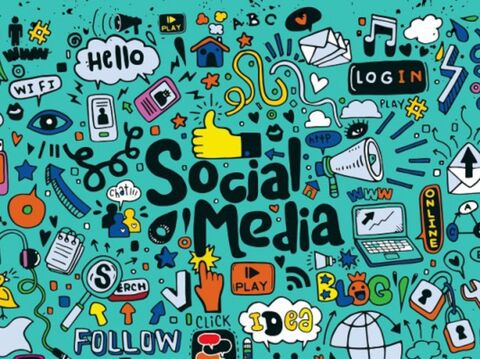Future Expectations of D2C Business Model!

The retail and consumer products supply chains have undergone a new revolution due to the rising demand for online shopping and convenient deliveries. Large retail brands and consumer goods producers have adopted the direct-to-consumer selling model, while conventional store owners have begun selling things digitally to meet consumer needs.
Direct-to-consumer, or D2C, selling is a quick-turnaround retail approach in which companies use an internet storefront to sell goods directly to customers without the need for intermediaries like wholesalers or distributors. Brands can sell directly to customers through fulfillment facilities, online marketplaces, or outside logistics companies.
Over 800 D2C brands are currently active in India, according to data provided by KPMG India. D2C businesses have generated more than $2.5 billion since 2014; by 2025, it's anticipated to reach $100 billion. Several direct-to-consumer (D2C) brands, including Boat, Wow Skin Science, Lenskart, Licious, MamaEarth, etc., have recently carved out distinct niches and developed compelling customer brand experiences.
What is the D2C Business Model?

The D2C Stands for the Direct-To-Consumer (D2C) Business Model. This business model differs from traditional business models. In the D2C business model, manufacturers and producers use their channels to reach customers and sell the goods directly to target consumers.
These channels can be social media, e-commerce platforms, and retail stores. In traditional business models, retail was accessible as the brand would sell its goods to retailers, and then retailers would sell them to shops.
However, the D2C method excludes wholesalers, distributors, and retailers from the supply chain and provides products directly to buyers. It also enables the producers to interact with customers directly and learn from them.
The internet age has enabled the consumer to interact with brand manufacturers directly, drastically impacting how customers interact with business owners. GrowthJockey has observed that 55% of consumers favor shopping now with brand manufacturers over retailers.
In the last two years, Many companies and brands have realized the value of digital adaptation and its importance for business growth and reputation. However, The companies and brands that are entirely based on buying and selling goods in bulk haven’t yet adopted a D2C strategy as it's based on selling individual items.
Difference between B2C and D2C Business Models
Both B2C (Business-To-Consumer) and D2C business models involve selling goods directly to consumers. However, a B2C company might sell various brands directly to consumers as opposed to a D2C company, which involves one brand selling its goods or services to target customers. Even though both business models are centered on selling products or services directly to consumers, direct-to-consumer (D2C) brands manage fulfillment and distribution by themselves instead of hiring a third party.
Current Scenario of the D2C Business Model
We at GrowthJockey have observed that the world has seen a significant and fundamental shift toward online shopping over the past two years. This has caused the expansion of digital channels for e-commerce, social media interaction, brand development, and other purposes. In the traditional business model or retail channels, the manufacturers and producers need more control over their platforms, the packaging they can use, marketing, customer information, policies, etc.
The D2C business model is currently flourishing. Thanks to the internet, businesses can reach their target audiences without going through traditional brick-and-mortar channels. D2C businesses can bypass expensive intermediaries and sell their products directly to consumers at lower prices. Additionally, the D2C model allows businesses to build stronger relationships with their customers by controlling the entire customer experience from start to finish.
Today, there are various modes brand owners can engage with customers even before they make a purchase. Brands with a D2C business model control entirely every aspect of customer experience. They can reach out to their customers in a much more calibrated and targeted manner than ever before. This is one of the primary reasons for the drastic growth of D2C brands.
The people of the current generation are significant consumers of brands that follow the D2C Business method because they heavily rely on digital platforms for news and trends and express a higher desire to try new brands and make purchases online. This expanding personal shopping trend is ideal for D2C's targeted and customized shopping approach.
What to Expect in the Future for D2C Companies?
The future of D2C companies is looking very promising. With the rise of the internet, many D2C companies have popped up and have been very successful. This is because D2C companies can reach a larger audience online. Additionally, D2C companies usually have lower prices than their brick-and-mortar counterparts, which appeals to many consumers. With the continued rise of the internet and e-commerce, D2C companies will continue to grow in popularity and success.
D2C or "direct-to-consumer" businesses have been on the rise recently, and it's easy to see why. This business model allows companies to sell their products directly to consumers without going through third-party retailers. This results in several advantages, including increased profits, more control over the customer experience, and the ability to build a strong brand. The D2C modelwill only become more popular in the future as more and more companies realize its benefits. We expect to see more D2C businesses in various industries, from fashion to food to home goods. And as the market for D2C products continues to grow, we can expect to see even more innovation and disruption in the space.
According to GrowthJockey, below mentioned are the future expectations and opportunities in the D2C Model:
Omnichannel marketing: In the direct-to-consumer market, it enables firms to design an integrated customer experience and reimagine how customers might conduct business with them. Offering a seamless experience through the creative integration of marketing channels and the physical and digital worlds gives customers a one-of-a-kind, never-forgettable experience. Customers benefit from an improved, integrated experience with omnichannel marketing; in the coming years, it will likely be used more creatively.
Untapped Market: There are many untapped markets for D2C businesses to explore. By definition, an untapped market is a group of potential customers who a product or service has not previously reached. This could be due to several reasons, such as the area being geographically isolated, the product or service not being marketed to that demographic or even cultural differences.
For businesses looking to expand their reach, tapping into untapped markets can be a great way to grow. Not only does it allow you to reach new customers, but it can also help you differentiate your business from your competitors. For D2C businesses looking to explore untapped markets, they need to consider things like demographics, psychographics, and buying behavior. By researching and being mindful of cultural differences, you can reach new customers and expand your reach.
Increased Personalization: With the rise of D2C brands, it is also expected to see an increase in personalization as D2C brands are required to collect data on customers' demographics, behavior, and preferences. D2C businesses can use this data to segment customers into groups and create targeted content and messages for each customer segment. Companies may also use marketing automation to deliver the right message to customers at the right time.
Leveraging Social Media Channel: Social networking is a powerful tool for D2C companies. Platforms like Facebook, Instagram, and Twitter can help you access an untapped global audience and build your brand's reputation among competing companies. Influencers have a strong and targeted hold on specific audiences, making them a powerful marketing tool.
Focus on Sustainability: D2C brands focusing on purpose and sustainability will prosper. Consumer awareness is improving over time. Most Gen Z and millennial purchasers consider a product's effects on the environment and their future in addition to their immediate purchase decision.
More direct-to-consumer (D2C) firms with sustainability at their core will enter the market during the next ten years. Brands will also take on missions that appeal to customers from various backgrounds to forge a greater connection of optimism and contentment with consumers.
The Bottom Line
The emergence of the digital age has created a new era of direct-to-consumer (D2C) business models. This business model has completely shifted how consumers shop; they no longer depend on brick-and-mortar locations to shop for products and services. The future of D2C expects to see increased personalization and will aim to provide a unique customer experience by catering to your customers' needs. If you need help unlocking your business's full potential, consult our team of experts at GrowthJockey for business growth and talent support.
At GrowthJockey, we're dedicated to helping D2C businesses overcome the unique challenges they face in today's competitive landscape. Our customized solutions are designed to address these challenges and drive growth for your brand, whether you're a small-scale enterprise or a large corporation. We understand that growing your D2C business can be a daunting task, but with our expertise and commitment to delivering results, you can take the next step towards unlocking your brand's potential.
Get in touch with us today to scale your D2C business!







